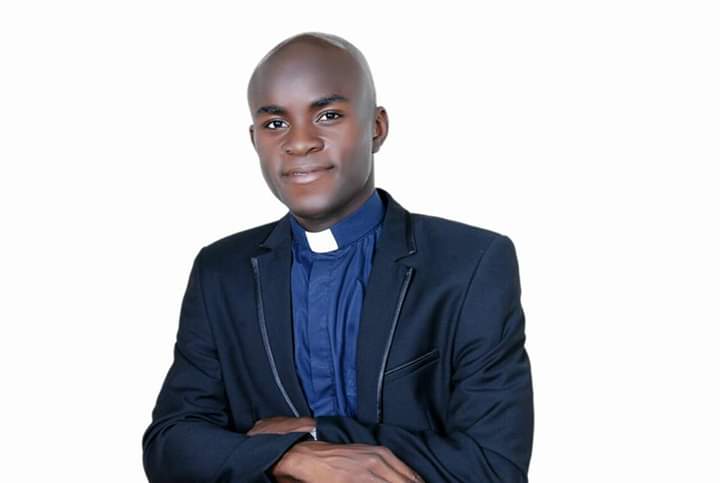Homilies & Reflections
Second Sunday Of Lent, Year A, By Rev. Fr. Lucas Binnah Junior, C.S.Sp
First Reading: Genesis 12:1-4a/Responsorial Psalm: Psalm 33:4-5.18-19.20 and 22 (R. 22) Second Reading: I Timothy 1:8b-10/Gospel Acclamation: Mt. 17:5/Gospel: Matthew 17:1-9
Theme: ON PERPETUAL PILGRIMAGE
Lent is a spiritual journey. Like all journeys, there is a movement from a point of departure to a point of arrival, a particular destination. However, this destination is not just a point of arrival, but a new beginning, a new way of life, an abandonment of the old ways of doing things and turning on a new leaf. It is being configured into the right image, right mind, right person and the better version God wants us to be. It is doing God’s will, not our own. This is our vocation, although, it differs from person to person. As determined by God, each of us must go on a perpetual pilgrimage as a means of accomplishing our God-given vocations. Let us now turn to the liturgical readings for some inspiration and instruction on how to handle our vocations faithfully and satisfactorily.
In the first reading, we see a typical example of one such pilgrim, Abraham, our father in faith, and how he discerns his vocation. God calls Abraham in the following words: “Go from your country and your kindred and your father’s house to the land that I will show you” (Gen. 12:1). This call from God comes with a promise: “And I will make of you a great nation, and I will bless you, and make your name great, so that you will be a blessing. I will bless those who bless you, and him who curses you I will curse; and by you all the families of the earth shall bless themselves” (Gen. 12:2-3). This vocation involves a movement from the known to the unknown, a detachment to attachment; a separation from the status quo to an intimate relationship with God.
So, trustful Abraham obeys God in humility; undertakes the pilgrimage in faith, hoping against hope (cf. Gen. 12:4a; Heb. 11:). Like the Psalmist, Abraham learns to pray thus: “May your merciful love be upon us, as we hope in you, O Lord” (Ps. 33:22). It quickly rings in our minds, the 1887 music authored by John H. Sammis and composed by Daniel B. Towner, whose first stanza and refrain run thus: When we walk with the Lord in the light of his word, what a glory he sheds on our way. While we do his good will, he abides with us still, and with all who will trust and obey. Trust and obey, for there is no other way, to be happy in Jesus, but to trust and obey!
In this penitential season of Lent, we too, like Abraham, are called to leave behind, our ‘country’ of sin, evil, weakness, convenience and all the vices which keep us in bondage and at a standstill. As Abraham was promised blessings upon leaving behind his old life, so also does God promise us a transfiguration, if we trust and obey him. Consequently, in today’s Gospel, Jesus, goes on ‘pilgrimage’ with Peter, James, and John to Mount Tabor, where his transfiguration sheds more glorious light on these disciples to the extent that, like Oliver Twist, not only do they want more of the theophany on the mountain, but want to remain there forever! (cf. Mt. 17:4). From another perspective, St. Paul acknowledges this extraordinarily glorious benefits in the second reading when he emphasises the salvific action of Christ “who abolished death and brought life and immortality to light through the Gospel” (II Tim. 1:10). Even now, it still holds that God, who is all-loving and fatherly, always wants to give his children the superabundance of his blessings.
Like the trio on the mountain, we also need to experience a transfiguration, a transformation, a change of focus and mind-set. As Jesus’ transfiguration strengthens the disciples in view of Christ’s passion, so also, we need succour and courage in moments of trials, temptations and difficulties. According to St. Pope Leo the Great, “The great reason for this transfiguration was to remove the scandal of the cross from the hearts of his disciples, and to prevent the humiliation of his voluntary suffering from disturbing the faith of those who had witnessed the surpassing glory that lay concealed.” With the appearance of Moses and Elijah, representing the Law and the Prophets, the Old and New Testaments intersect to acknowledge Christ as the fulfilment of Holy Scriptures. This means that, in the person of Christ, we pass from mere hope and mere faith to the real reality.
Also, Christ’s transfiguration confirms the divinity, trinity and closeness of Christ to the disciples. In the same vein, we also receive assurance of God’s ever-abiding presence in our lives. Again, just as Jesus’ transfiguration leads the disciples to the fullness of knowledge, so also do we come to an experiential knowledge of Christ when we hold firmly to his friendship. Furthermore, Jesus’ Transfiguration reflects his glory in the midst of the disciples. By this, we too are given the surety of the rewards of glory, victory, peace, happiness and contentment if we stay united with Jesus.
Beloved in Christ, to partake in the blessings of God’s holy calling, we need to trust and obey like Abraham, and be ready to take our share of sufferings for the Gospel in the power of God as we note in the second reading (cf. II Tim. 1:9). Sufferings and sacrifices are integral aspects of every vocation journey. No cross, no crown! As pilgrims, personal and common sufferings await us on every side and at all times. Be that as it may, we are reminded that “the sufferings of the present time cannot be compared with the future glory that is to be revealed in us” (Rom. 8:18).
Christ’s transfiguration calls us to be obedient like Abraham and be attentive listeners of the commands of God. We read thus: “This is my beloved Son, with whom I am well pleased; listen to him” (Mt. 17:5). All too often, we are quick to listen to social media, human agents, certain ideologies, philosophies and theologies which may not be godly. We have no time to listen to Jesus. We are busy with our mobile phones than with our Bibles. We are ubiquitous at social and sporting events, but when we are expected to position ourselves strategically in the ‘secret place of the Most High (cf. Ps. 91:1), we only find flimsy excuses. We look for earthly power which destroys us eventually, but are not willing to sit on the Lord’s right hand in prayer where divine power puts our enemies under our feet (cf. Ps. 110:1). We need to create ample time to listen more to God; To create a deep relationship with the Lord, animated by daily prayer and communion with the same.
Dearest in Christ, the spiritual exercises and penances in Lent offer us a great opportunity to experience inner renewal and change, so as to become better people, effective witnesses and good citizens of the world. Let us not be discouraged; neither should we entertain fear in the face of hardships. Let us not throw in the towel, but pray for wisdom and courage to be perpetual pilgrims. Temptations and difficulties have expiry dates, but our Master Jesus is forever with us if we build lasting relationship with him. None of us should lose confidence in the reward that has been promised, for, in the words of Pope St. Leo the Great, “The way to rest is through toil, and the way to life is through death.” May Christ enable us to embrace our vocations to his greater glory. Happy Sunday and may God richly bless us! Remember, we are on a: #Perpetual-Pilgrimage#
Sharing is caring!
Ghana Catholic News aim to provide up to date news on the Catholic Church in Ghana on various disciplines such as diocese, priesthood, programs/events, promoting of the Catholic faith, daily readings, homilies, Catechism, etc.





